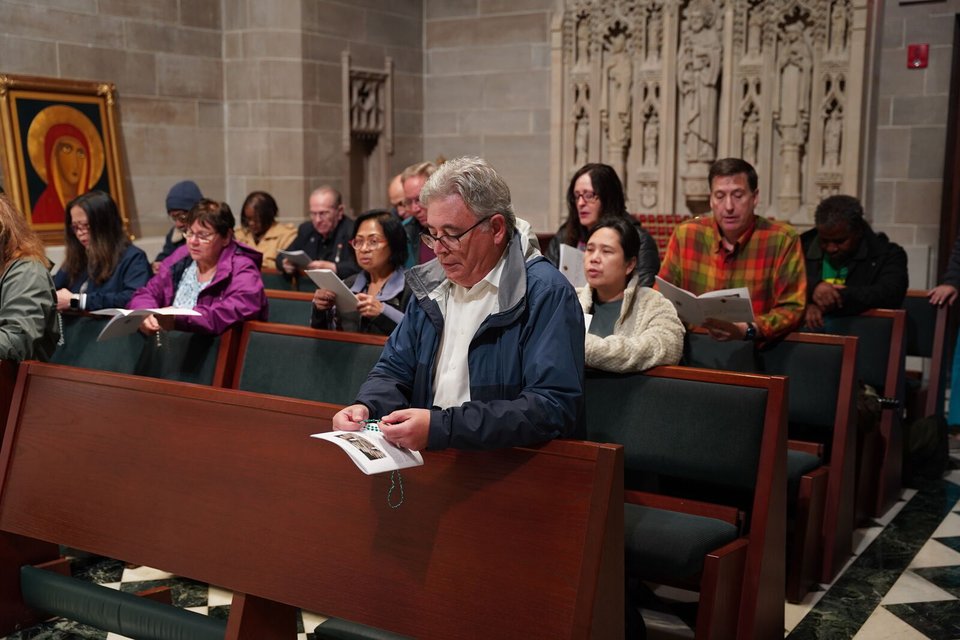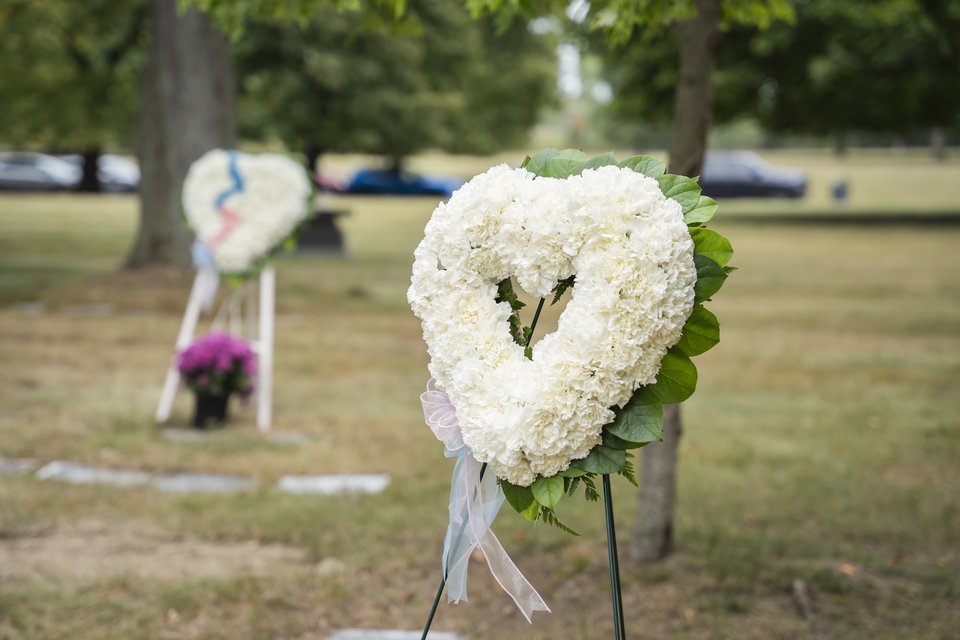After months of debate, Gov. Whitmer signs eight bills repealing partial-birth abortion, clinic health and licensing requirements
LANSING — Catholic and pro-life leaders expressed dismay at Gov. Gretchen Whitmer’s signing of eight bills Nov. 21 related to the Reproductive Health Act eliminating regulations on the abortion industry in Michigan and rolling back protections for vulnerable mothers.
After months of debate in Michigan's Democratic-controlled legislature, Gov. Whitmer signed bills repealing licensing requirements for abortion facilities, removing the state's partial-birth abortion ban from the public health code, eliminating guidelines for disposing fetal remains, and ending bans on providing abortion information at pregnant and parenting student programs at public universities.
In signing the bills, Gov. Whitmer cited the state's passage of Proposal 3 last fall, which created a super-right to abortion in the state's constitution.
“This is a dark day in Michigan as the governor recklessly signs into law a package of bills that present an immediate danger to the health and safety of women and children, including the unborn, in our state,” said Barbara Listing, president of Right of Life of Michigan.
Gov. Whitmer has yet to sign a tie-in bill that would codify the language of the constitutional amendment into law and enact many of the new provisions. She is expected to sign that bill as well.
Right to Life Michigan and the Michigan Catholic Conference both cited a statewide poll conducted in October by the Lansing-based Marketing Resource Group showing 95% of Michigan voters support “abortion facilities being licensed and inspected by the state for health and safety reasons.”
“Removing state oversight of health and safety standards at abortion facilities only serves the interest of an industry all-consumed with expanding its abortion business in our state,” Michigan Catholic Conference policy advocate Rebecca Mastee stated in response to the governor’s signing of the bills.
Since the Reproductive Health Act was prioritized in an August speech from Gov. Whitmer, pro-life advocates in the state warned of the dangers of the legislation, made possible by last fall's election results.
“Rather than promote effective public policies for supportive services and care for pregnant women and their unborn children, elected officials in Michigan have chosen to prioritize the abortion industry at the expense of the health and safety of women,” Mastee said. “Under the false guise of ‘health care,’ these bills only move the state further away from protecting life and supporting vulnerable women.”
Despite the setback, Listing said pro-life advocates were successful at defeating some of the more radical elements of the proposal, which would have removed a ban on Medicaid-funded abortions, mandatory screening for coerced abortions or a 24-hour waiting requirement before an abortion is performed.
However, Listing said those proposals could be revisited in future bills.
“There is a silver lining,” Listing said. “The steadfast leadership of our pro-life legislators joined by a common-sense colleague led to keeping in place informed consent, including the 24-hour waiting period, and the barrier against using taxpayer dollars for abortion."
The Michigan Catholic Conference argued the bills that did pass will result in minimal transparency or accountability for abortion clinics, aborted children being discarded in waste containers, and more abortions for college-age women after a policy prohibiting universities and colleges from referring students for abortions was repealed.
The full passage of the Reproductive Health Act was hindered by Michigan State Rep. Karen Whitsett, D-Detroit, who stated her opposition to terminating the 24-hour waiting requirement. The bills passed by party-line vote in the House, where Democrats hold a slim 56-54 majority.
“These policy changes would have been significantly worse if not for the commitment to conscience exemplified by particular lawmakers in the face of hostility and threats from the abortion industry through the RHA debate,” Mastee said. “We are grateful to those members for their courage.”
Passage of the eight RHA bills comes at time when the abortion debate in the United States has moved to the state level since the U.S. Supreme Court overturned Roe v. Wade in June 2022.
Earlier this month, Ohio passed a constitutional amendment enshrining abortion in its constitution, and pro-life advocates in Michigan gathered in Lansing for the first Michigan March for Life on Nov. 8, the one-year anniversary of the passage of Proposal 3.
That election saw the re-election of Gov. Whitmer and Democratic majorities in both the Michigan Senate and House of Representatives, in which abortion rights were a main fixture of public discourse.
“In the year since Proposal 3 passed, the governor and the legislative majority have removed protections for women against dangerous abortion practices, mandated abortion benefits for employers who provide coverage for pregnancy or childbirth, and are now set to enact policies that welcome partial-birth abortions and leave the abortion industry unaccountable to the women they see,” Mastee said.
Right to Life Michigan said its focus now will shift toward protecting parental permission for a minor to seek an abortion, which could be the next regulation to fall.
“Abortion providers and advocacy organizations have openly threatened removal of this important protection," Listing said. "More concerning, we have heard this intention echoed in the halls of our state legislature.”
Regardless, pro-lifers must continue to support children and their mothers by promoting policies that encourage parenthood, the Michigan Catholic Conference added.
“Going forward, the Catholic Church in Michigan and pro-life organizations across the state will remain vigilant in urging lawmakers to prioritize policies that help both mothers and their unborn or newly born children with ensuring the necessities of life and good health,” Mastee said. “We invite policymakers to envision with us a society where women in difficult situations have community and the support they need to make a choice for life and are provided life-affirming and loving options beyond abortion.”
Copy Permalink
Pro-life Faithful citizenship












